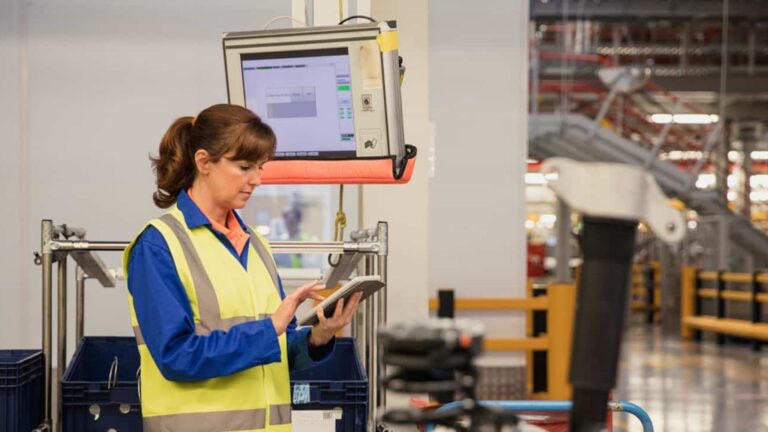Digital Marketing in London: Strategies for Success
London is a city of unparalleled opportunities, with its diverse population, vibrant business ecosystem, and global reach. It’s no surprise that businesses in this bustling metropolis are turning to digital marketing to stand out in the crowded marketplace. Whether you’re a startup, a small business, or an established enterprise, digital marketing in London requires a tailored approach to captivate the city’s dynamic audience.
This guide is your toolkit to navigating and excelling in the digital marketing landscape of London. We’ll cover essential strategies, insights, and tips to help your business make an impact online.
Why Digital Marketing Matters in London
London is home to over 1 million businesses and has one of the most competitive markets in the world. Here are a few reasons why digital marketing is indispensable for businesses in London:
- Highly Competitive Market: Whether you’re in retail, real estate, or tech, competition is fierce. Digital marketing can help you differentiate your brand and build customer loyalty.
- Tech-Savvy Audience: With nearly 98% of London’s population being internet users, having a robust online presence is crucial to reaching and engaging them effectively.
- Global Appeal: London attracts a diverse, international audience. Digital marketing allows businesses to tap into local and global markets alike.
Building a Winning Digital Marketing Strategy
Success in digital marketing starts with a well-thought-out strategy. Below are the essential elements to focus on:
1. Understanding Your Target Audience in London
London’s audience is incredibly diverse in age, income, culture, and interests. This diversity presents both opportunities and challenges.
- Demographic Analysis: Understand where your audience is situated—East London’s tech-savvy millennials need a different approach compared to West London’s affluent professionals.
- Cultural Sensitivity: Showcase your brand’s inclusivity by crafting content that speaks to London’s multicultural population.
- Behavior Insights: Use tools like Google Analytics and social media insights to understand your audience’s behavior and preferences online.
2. SEO for Local Discovery
Search Engine Optimization (SEO) is crucial to ensure your business is discoverable online. Here’s how to tailor it for the London market:
- Focus on Location-Based Keywords: Use terms like “digital marketing London” or “best cafes in Shoreditch” to rank higher for local searches.
- Google My Business: Claim and optimize your Google My Business profile. Add accurate contact details, high-quality photos, and regular updates to appear in local search results.
- Local Backlinks: Collaborate with London-based blogs, news outlets, and businesses to earn backlinks that boost your website’s authority.
3. Social Media Marketing for Londoners
Social media is pivotal for engaging your audience and building a community in London. Platforms like Instagram, LinkedIn, and Twitter are especially effective for different industries.
- Instagram for Visual Appeal: Showcase your products, events, or business in iconic London settings. Geo-tagging locations can help you attract local followers.
- LinkedIn for B2B Connections: If your aim is business-to-business (B2B), LinkedIn is the go-to platform. Engage London professionals through thought leadership posts, case studies, and industry discussions.
- Twitter for Real-Time Updates: Use Twitter for live updates on events, promotions, and news related to London. Follow local hashtags like #LondonEvents or #LondonFood.
4. Paid Advertising to Amplify Reach
Pay-per-click (PPC) advertising can help accelerate your digital marketing results in London. Platforms like Google Ads and Facebook Ads are particularly effective.
- Local Targeting: Use geo-targeting features to focus your ads specifically on London boroughs or neighborhoods, ensuring you reach the relevant audience.
- Event-Based Campaigns: Tailor ads for local events like London Fashion Week or the Notting Hill Carnival to capture attention during these peak times.
- Retargeting: Implement retargeting campaigns to re-engage users who have previously visited your website or interacted with your business.
5. Content Marketing that Resonates
Content is the backbone of any digital marketing strategy. To stand out in London’s saturated market, you need content that is both engaging and valuable.
- Local Content: Create blogs, videos, or infographics that address local interests, such as “Top Restaurants in South London” or “How Businesses in London Use AI.”
- Video Marketing: Use platforms like YouTube or Instagram Reels to share videos highlighting your unique offerings. Showcasing London landmarks in your visuals can add a touch of relatability.
- Collaborations: Partner with local influencers or industry leaders to increase your content’s visibility and credibility.
6. Email Marketing for Personalized Engagement
Email marketing remains one of the most cost-effective ways to engage your audience in London. Use personalized, location-specific content to drive better results.
- Segmentation: Segment your email list by location, shopping habits, or interests to ensure your messages are relevant to each group.
- Event Updates: If you’re hosting events in London, use email to keep your audience informed and excited.
- Exclusive Offers: Provide offers tailored specifically for London residents, such as discounts at local stores or invitations to exclusive events.
7. Leveraging Analytics for Continuous Improvement
Tracking and analyzing your digital marketing efforts is essential to achieve long-term success.
- Google Analytics: Monitor traffic, user behavior, and conversions to assess the performance of your website and campaigns.
- Heatmaps: Use tools like Hotjar to see how visitors interact with your website, helping you optimize your layout and design.
- Regular Reporting: Create weekly or monthly reports to measure key performance indicators (KPIs) like ROI, click-through rates, and customer acquisition costs.
Challenges of Digital Marketing in London (And How to Overcome Them)
London is a unique market, which comes with its own set of challenges:
- High Competition:
- Solution: Find your unique selling proposition (USP) and highlight it in all your marketing efforts.
- Fast-Paced Trends:
- Solution: Stay updated on industry trends by following local blogs, news outlets, and competitors.
- Budget Constraints:
- Solution: Focus on cost-effective strategies like organic social media, email marketing, and SEO.
Taking Your Digital Marketing to the Next Level
Digital marketing in London isn’t just about being visible—it’s about thriving in a competitive, vibrant market. By understanding your audience, perfecting your strategy, and leveraging the right tools, your business can reap the rewards of a strong online presence.
Not sure where to start? Reach out to our team of experts. We specialize in tailored digital marketing strategies that deliver real results for London-based businesses. Contact us today and take your first step toward digital success!
FAQs About Digital Marketing in London
1. Why is digital marketing important for businesses in London?
Digital marketing is essential for businesses in London due to the highly competitive and diverse market. It helps companies reach their target audience effectively, establish a strong online presence, and stand out against competitors.
2. How can small businesses compete with larger companies in digital marketing?
Small businesses can compete by focusing on niche audiences, leveraging cost-effective strategies like social media and SEO, and emphasizing their unique selling propositions. Personalized customer engagement also gives small businesses an edge.
3. What are the most effective digital marketing channels for London-based businesses?
The most effective channels vary by industry, but commonly used ones include search engine optimization (SEO), local pay-per-click (PPC) ads, social media platforms like Instagram and LinkedIn, and email marketing campaigns.
4. How can I measure the success of my digital marketing efforts?
Success can be measured using key performance indicators (KPIs) like website traffic, conversion rates, engagement metrics, and return on investment (ROI). Tools like Google Analytics and social media insights are useful for tracking these metrics.
5. Should I hire a digital marketing agency or manage it in-house?
This depends on your resources and expertise. Hiring an agency provides access to a team of experts with knowledge of the latest trends and tools, while managing it in-house might be more cost-effective for smaller budgets but requires sufficient skills and time.


